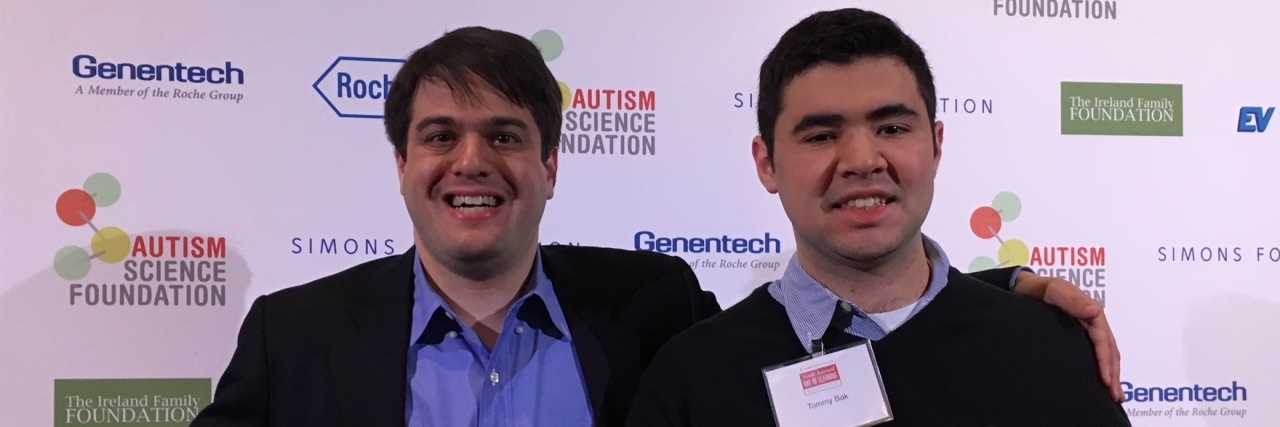On March 27, 2019, I attended the Autism Science Foundation’s Sixth Annual Day of Learning, which was held in New York City. I attended the event because I am an adult with autism and I wanted to know more about the current areas of autism research. Because I am an adult with autism, autism research affects me.
The Autism Science Foundation is a nonprofit organization that supports autism research. The presenters at the Day of Learning spoke in a TED-style format to discuss various topics related to autism research. Each presentation was about 20 minutes long.
The first speaker was Dr. Joshua Gordon, the Director of the National Institute of Mental Health. He said that autism is a genetic condition and early treatment for autism often improves outcomes of children who are diagnosed with it. He pointed out that the prevalence of people with autism varies among ethnic groups and the number of children who have it is unclear, because not every person in the world has access to medical and educational services. I feel concerned about this because there are people out there who might have autism and if they don’t get diagnosed, they can’t get the help they need.
A lot of the research funded by the NIMH has focused on early development and early intervention in autism. A major concern raised by audience members was that more funding for autism is provided for children than adults. This concerns me since I’m an adult on the spectrum. Dr. Gordon responded that the NIMH was starting funding for research on adults with autism. I agree that we need to focus more research on adults. As an adult with autism, it’s easy for us to worry that if we don’t have services that will help us get out of the house, we will be forgotten. As a young adult with autism, being able to live independently is important to me. I believe research to help adults needs to be a major area of focus for the NIMH.
Another area that has not received enough focus by the NIMH is suicide in people with autism. Dr. Jeremy Veenstra-VanderWeele, a child and adolescent psychiatrist from Columbia University Medical Center, presented the topic of suicide in the autism population. He said that risk of suicidality is increased in people with autism. He showed a chart that described suicide as a growing problem in the United States among people with autism and people without autism.
He stated that one of the main reasons people with autism die by suicide is the loss of protective factors such as aging out of education services. This is a major concern for many of my friends who have autism. After we age out of education services, it’s easy for us to lose contact with each other. Losing contact can contribute to isolation, which can lead to depression, which is a risk factor for suicide.
Dr. Matthew Siegel of Maine Behavioral Healthcare and Dr. Rebecca Jones of Weill Cornell Medicine gave a presentation on wearable technology for people with autism. Dr. Siegel stated in his presentation that the rate of aggression in people with autism is 5 percent and self-injury is 11 percent. He talked about how people with autism who are aggressive have a different developmental trajectory than people with autism who are non-aggressive. He stated it is possible for aggressive people with autism to have a decline in their life skills, which is a major problem.
He explained that heart rate increases before aggression. He then talked about how a heart rate monitor like a Fitbit could alert caregivers to help a person with autism before aggression occurs. I liked his idea of using a Fitbit to monitor heart rate since I know some people with autism who might benefit from having a device that could help prevent them from becoming aggressive.
The presenters also discussed iPhone apps and glasses with a camera built in between the lens. I know people with autism who use iPads as a form of communication, and that is very helpful for them. Wearable technology has the potential to become a helpful solution for treating and diagnosing autism. Wearable technology helps some people with autism communicate effectively, but it still needs further development and unfortunately not everyone with autism has access to these kinds of devices.
I enjoyed going to the ASF Day of Learning and found it to be a great opportunity to learn more about autism research. My favorite part was talking to another person who is an advocate for autism, Paul Morris. I appreciated that other adults with autism were at the Day of Learning, because I believe more adult advocates should come to events like this to represent the autism community.
I am grateful to the Autism Science Foundation for organizing the Day of Learning and for the support they provide for funding autism research. I would recommend this event to other adults with autism who are interested in learning more about autism research.

